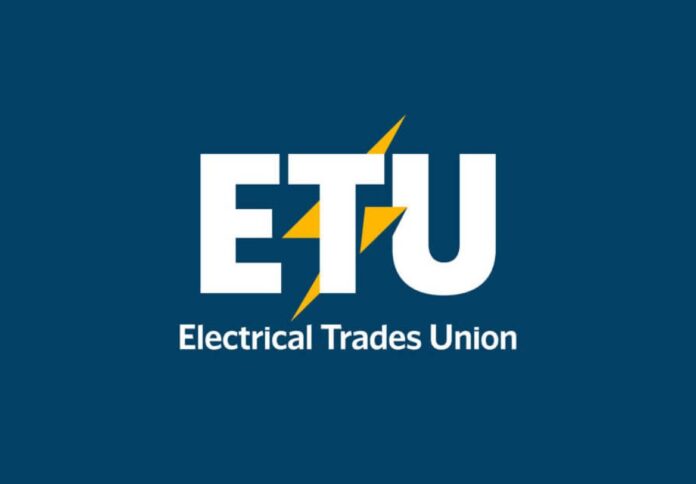
Media Release by Electrical Trades Union of Australia
Australia is facing a major training crisis with a new survey of electrical apprentices revealing the soaring cost of living and failing mentorship system is pushing people to the brink of quitting.
Electrical apprentice completion rates currently sit at just 52 per cent – a figure that is far too low if Australia is to meet its international carbon emissions reduction commitments.
The research exposes deep problems with Australian Apprenticeship Support Networks (AASNs), which spent nearly $330 million of taxpayers’ money in the 2020/21 financial year.
Over the next four years, AASNs are slated to cost the budget almost $920 million.
The survey of 642 electrical apprentices, conducted by Essential Media for the Electrical Trades Union, showed more than 37 per cent considered quitting their apprenticeship.
The top reason apprentices gave for thinking about termination was wages (17 per cent) ahead of work culture (16 per cent) and cost of living (14 per cent).
Low apprentice wages are having a major impact with one-third reporting their pay was not adequate to cover bare necessities such as food, travel and housing.
The majority of apprentices spend between $50 and $99 on petrol each week, with 34 per cent travelling more than 200 kilometres to and from work.
AASNs have the responsibility of providing apprentices with mentoring and support.
But just 11 per cent of apprentices surveyed said they received mentoring from their AASN provider. Half received no support whatsoever.
Two-thirds of respondents were unsure who their AASN provider was. More than 88 per cent of apprentices had not discussed electives with their AASN provider despite electives being integral in renewables training.
Electrical Trades Union Acting National Secretary Michael Wright said the survey laid bare deep problems with apprenticeships.
“These damning results paint a devastating picture of a broken system,” he said.
“With apprentices considering quitting in droves, urgent action is needed to arrest a looming skills crisis that could have shocking consequences for generations.
“The crisis is made worse by the abject failure of the Apprenticeship Support Network system. Mentoring is key to keeping apprentices in training, but taxpayers are down to spend more than $1.25 billion over five years for something that is simply not doing its job.”
“Australia’s energy future hinges on training tens of thousands of electrical tradespeople – overhauling the AASN system is a national priority.”
The release of the survey comes as the ETU launches a major national advertising campaign across radio, print and television in the lead-up to the Jobs and Skills Summit.
“We are highlighting the fact Australia will need tens of thousands of skilled electrical workers to connect renewables like solar, wind and batteries to our electricity grid,” Mr Wright said.
“We need a Powering Australia skills plan to upskill our workforce and train the thousands of Australian workers with the right skills to meet the demand.”
Key survey results:
* Just 11 per cent of apprentices have received any mentoring from their AASN provider
* Half received no support of any kind from their AASN provider
* More than 37 per cent of respondents have considered quitting
* Wages (17 per cent), work culture (16 per cent) and cost of living (14 per cent) were the top reasons people considered quitting. Almost a third of respondents nominated either wages or cost of living.
* More than two-thirds of respondents were unsure if they had an AASN provider. More than 88 per cent of apprentices had not discussed electives with their AASN provider. Electives are key for renewables training.
* One-third of apprentices feel their wages do not cover the bare necessities like food, travel and housing
* With petrol prices soaring, 84 per cent of respondents drive their own car to and from work. More than 34 per cent drive 200kms or more each week.



















